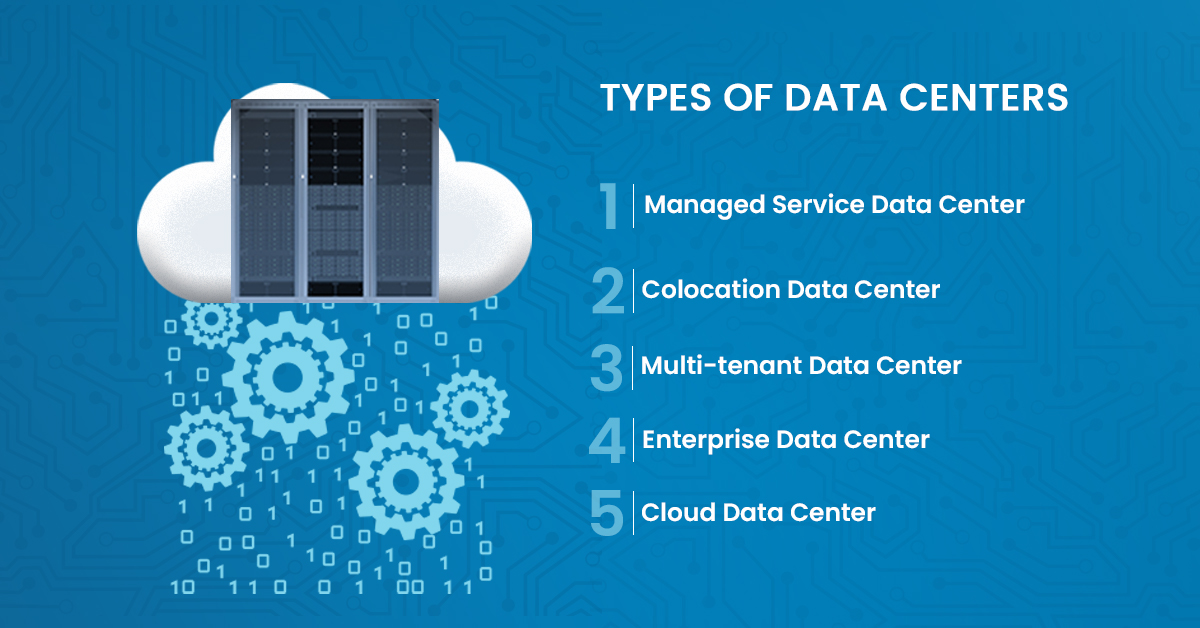Data Centers, for all intents and purposes, are structures that provide shared access to applications and data using a complex network, compute, and storage infrastructure.
From small server rooms to groupings of geographically distributed buildings, data centers come in all sizes and shapes, but one thing they all have in common is this: data centers are critical assets where companies often invest in and deploy the latest advances in data center networking, computing, and storage technologies.
Types of Data Centers
Rather than being a space dedicated to on-premises infrastructure, today's data centers contain on-premises systems in conjunction with cloud infrastructures that will make use of virtualized networks, applications, and workloads across multiple private and public clouds.

- Enterprise Data Centers are usually designed and maintained by a single organization for its own internal needs. Technology giants typically have them.
- Colocation Data Centers are rentals of data center space and resources that are made available to people who wish to access them.
- Managed Service Data centers take care of aspects such as data storage, computing, and other services directly for customers.
- Cloud Data Centers provide customers with distributed and managed services provided by third parties.
- Multi-tenant Data Centers also known as Wholesale Data Center profits for large companies that need big spaces than a typical colocation provider would deal with. Wholesale colocation is generally offered at cheaper rates compared to retail colocation.
Read More>>

No comments:
Post a Comment